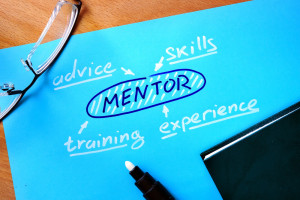Tips for Fellows to get the most out of the Mentorship Relationship
Mentorship can have many definitions and interpretations. A commonly accepted definition of mentorship is the personal developmental relationship in which a more experienced or more knowledgeable person helps to guide a less experienced or less knowledgeable person.
The mentoring process seeks to develop an individual as a whole, through a learning relationship that integrates and balances all aspects of an individual into the development process. The learning process is typically driven by the mentee’s development goals and should be agreed upon mutually by both mentor and mentee at the beginning of the relationship.
Since there are many ways to engage in a mentorship relationship, here are a few tips to help you get the most out of your mentorship relationship right from the start:
Manage Expectations
Mentors and mentees often enter the relationship with expectations of each other that may be hidden and not discussed. Here are some helpful hints to create openness and prevent disappointment:
- Take the time to discuss how you will set up meetings and the best ways to communicate with each other.
- Share your goals and what you would like to learn from each other.
- Ensure your expectations for the relationship are clearly outlined and communicated.
- Set up a schedule to meet, and keep to your schedule. Make a plan that meets your needs. There will be times when an agenda is useful and other times when a more relaxed approach works better.
- On-line and over-the-phone relationships need special care. Make an effort to meet in person or by Skype.
Come Prepared
As a mentee you are expected to actively engage in the learning relationship by bringing your experiences, questions, surprises, and challenges for exploration, discussion, and learning. Here are some tips to help you prepare for, and best engage in this new relationship:
- Bring your questions about careers and the workplace to explore with your mentor;
- Maintain respectful behaviour and communications at all times;
- Be patient with the process and maintain a healthy sense of humour;
- Be open to feedback from your mentor;
- Initiate conversations by bringing forth thoughtful questions to explore; and
- Create a workplan, or an outline of topics, or areas you would like to work on with your mentor.
Be Open
Take the time to get to know each other, and build a solid foundation for your relationship. This can be done by sharing personal backgrounds and histories, and anecdotes about your lives. It can feel daunting to build a very personal relationship with your new mentor when no prior history exists. Remember to be open to the experience, and that communication is key to every meaningful relationship.
Be Grateful
Perhaps most importantly, remember to enjoy this mentorship experience. Mentorship has the power to change lives, and this relationship could be an incredibly valuable experience for you. Remember to let your mentor know that you appreciate them taking the time to support you in your journey and don’t be afraid to say thank you!







